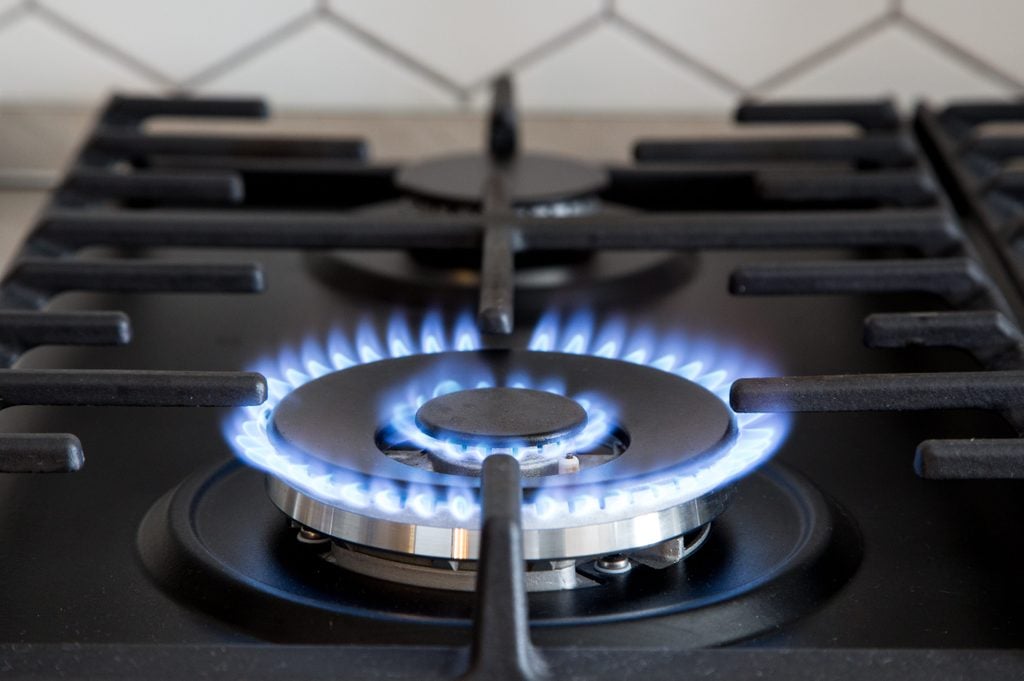Is the Federal Government Really Going to Ban Gas Stoves?
Updated: Mar. 22, 2023

No. The Consumer Product Safety Commission is looking into the safety hazards from indoor air pollution by gas stoves, but it's not ready to act.
If you’ve been on social media or watched any cable news lately, you might have noticed some hysteria about the federal government possibly banning gas stoves. There’s even been some heated rhetoric about authorities marching into homes to remove gas stoves. That’s not actually happening, nor is it going to happen.
As usual with these situations, the reality is more nuanced. There are health risks associated with gas stoves, but nobody’s coming to take away anyone’s appliances. And we’re a long way from regulators banning gas stoves. So what’s really going on?
Here’s what you need to know.
On This Page
Who Said the Government Is Going to Ban Gas Stoves?
In a story by Bloomberg published on January 9, Commissioner Richard Trumka Jr. of the Consumer Product Safety Commission (CPSC) said the agency would consider action to regulate gas stoves, possibly including a ban. “Any option is on the table,” Trumka told Bloomberg. Another measure the agency could take, he said, would be setting standards for gas stoves that reduce the amount of pollutants they emit.
His comments came in response to a study published in December by the International Journal of Environmental Research and Public Health that found 12.7 percent of current childhood asthma cases in the U.S. can be attributed to indoor air pollution from gas stoves. Several other recent studies found a direct link between indoor air pollution from gas stoves and respiratory health issues.
Are Gas Stoves Actually Dangerous?
Yes.
Cooking releases particulate matter into the air, whether you’re frying something on a gas stove or an electric one. However, gas stoves produce more harmful indoor air pollution compared to electric because of the combustion process.
Gas stoves combine natural gas with oxygen to make a flame. A byproduct of that process is nitrogen dioxide (NO2). Research has found NO2 emissions from gas stoves contribute to increased severity of symptoms and increased nighttime inhaler use in children with asthma.
Another pollutant associated with gas stoves is methane, the primary component of natural gas and a potent greenhouse gas. Gas stoves release methane mostly via leaks, which can occur even when a stove is turned off. A study from the American Chemical Society found that in one year, gas stoves emitted enough methane to rival that of half a million cars.
Is the Government Really Going to Ban Gas Stoves?
No. To fully understand what’s going on, it’s important to tune out the people trying to score easy political points by shouting about it.
“Research indicates that emissions from gas stoves can be hazardous, and the CPSC is looking for ways to reduce related indoor air quality hazards,” CPSC chair Alexander Hoehn-Saric said in a statement provided to Family Handyman. “But to be clear, I am not looking to ban gas stoves and the CPSC has no proceeding to do so.”
And after some fear-mongering online, Trumka said on Twitter this week in response to U.S. Rep. Gary Palmer (R-Ala.) that “the CPSC isn’t coming for anyone’s gas stoves.”
A number of cities across the country have banned natural gas in new construction, including Los Angeles, San Francisco and Seattle. New York Gov. Kathy Hochul recently proposed a state-wide ban on natural gas hookups in new buildings.
At the federal level, any regulatory action would involve a lengthy process before changes come about. And Trumka added in his tweet that any changes would only apply to new products.
As for what’s next, Hoehn-Saric said in his statement the agency will continue to research the hazards associated with gas stoves while looking for ways to strengthen voluntary safety standards. In the spring, the agency will seek public input about gas stove emissions and ways to reduce their associated risks.
What Should You Do if You Have a Gas Stove?
If you’re thinking about replacing gas appliances, this is a good time to do it. As part of the Inflation Reduction Act, households can get a rebate of up to $840 toward a new electric stove or other appliances, and up to $500 to convert from gas.
A lot of home cooks prefer the precise heat control of gas stoves, but induction stoves can be just as effective and even more efficient. Electric stoves are no slouch, either. A recent examination by Consumer Reports found that electric ranges are actually better than gas at high heat, and just as good for simmering things on low heat.
Whether you plan to replace your stove or not, there are still some steps you can take to reduce the hazards associated with a gas stove in your home.
Proper ventilation can help. That can be as simple as opening the windows while you cook or running your range hood to move exhaust outdoors. Make sure to change the range hood filters, too.
Air purifiers also can be helpful. While they won’t remove all particulate matter in the air, they can cut down on it. Another benefit: They’re easy to move around, so you can put one in the kitchen while you’re cooking.
